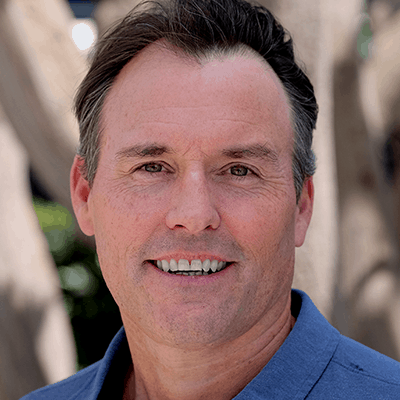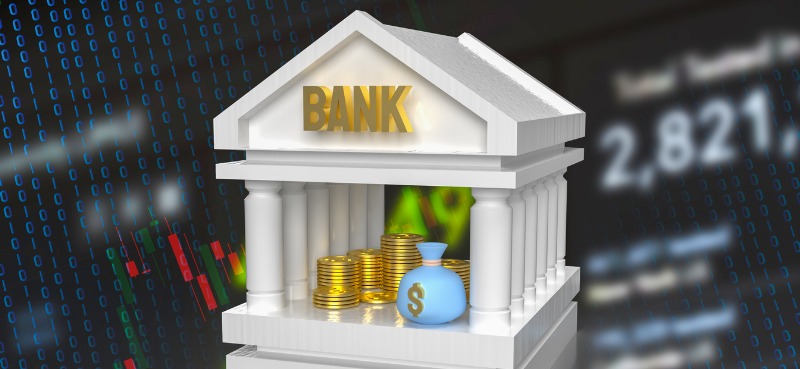When it comes to security tokens, there are few (if any) people with greater expertise than Gregory Keough.
Gregory is founder and chairman of the Institute for Blockchain Innovation. He has over 20 years of experience in mobile payments, lending, and financial services and has been featured in numerous media outlets for his innovative work.
And today, Gregory joins me for the first time to discuss his current projects… and why he believes security tokens represent a trillion-dollar opportunity [21:10].
And stay tuned for my educational segment, where I bring you up to date on our own security token, Curzio Equity Owners (CEO) [42:52].
Wall Street Unplugged | 675
Here’s why security tokens represent a trillion-dollar opportunity
Announcer: Wall Street Unplugged looks beyond the regular headlines heard on mainstream financial media, to bring you unscripted interviews, and breaking commentary direct from Wall Street right to you on mainstream.
Frank Curzio: What’s going on out there? It’s June 26th. I’m Frank Curzio, host of the Wall Street Unplugged podcast, where I break down the headlines, and tell you what’s really moving in these markets.
Man, what a move in gold here. The Bulls are out in full force. This is the time they’ve been waiting for. And for me, just take a step back. I just can’t believe there’s so much optimism after probably a 7% move in gold this month. From 1313 to over 1400, maybe a little bit more than 7%.
Hey look, I have a lot of friends in this industry. I’ve interviewed a lot of people on this podcast in the mining industry. Close friends, hard workers. A lot of them run their own mining companies. You know what? It’s great news. If you look at this market, it’s cyclical. These guys are not selling DVDs, or in the coal industry, or trying to make a living in an industry that’s in a secular decline.
It’s an industry that’s just been annihilated. You think about it, its executives, investors, have little to cheer about for what, six years, outside of a brief move higher from late 2015 to around mid 2016. And right after that, gold and silver stocks started crashing again. So, I’m really happy for them. Happy for my subscribers, and listeners, who have exposure. At least you should. Happy for myself since I own gold. I own gold coins and gold stocks. So, I understand the enthusiasm.
What I don’t get is the animosity, the same people, well at least some of them, have against Bitcoin, which is up huge, this year. With 3,600, around those levels, early January, now broke 11,000. So for me, I’m trying to understand why so many gold bugs are hating on Bitcoin. Almost like it has to be an either or investment. There’s black and white, you can own one, you can’t own the other. But to see it, and I see it on Twitter, and I hear it just from friends. The anger that comes behind that on both of these sides, especially the anger from gold bugs, after just a 7% move.
I’d wait a little bit longer to claim victory here, not that you’re claiming victory. Bitcoin is up a lot more. I’m not too sure what kind of indicator that represents. We had the gold bugs trashing Bitcoin. And my guess, maybe it means Bitcoin probably has much more upside potential. Usually when you see so many people trashing a stock and all, something that has momentum, it usually goes a lot higher.
Beyond Meat is a good example. Tesla’s a great example. You can say, “Well, Tesla came down.” What was it? Five, six, we’re not stopping below 100. People were destroying that thing. Went to 150, went to 200, went to 250, 300, almost at 400, before it finally pulled back. Where is it, around 220 today? But you see as things move incredibly higher, the more anger you see within these stocks, and more people that come out against them.
So what I’m saying is, they could just move a lot higher or a lot lower based on sentiment. I’m not too sure if that’s what it means. Maybe that’s the indicator of the gold bugs trashing Bitcoin. But the reason why I’m opening up with this segment, because I know a lot of you own gold, and a lot of you own Bitcoin and Cryptos. Is, try to stay away from the noise, or the permeabulls or permabears, in anything.
We look at us, our methodology, it’s about the data. And let’s start with the recent breakout in gold. Because when you look at it from a technical level, in the past five years, gold approached 1350 numerous times, about four or five times. Every single time over this five-year period, it bounced off this level and headed lower. Which by the way, I first saw it being pointed out by Carter Worth. If you don’t know him, he’s on CNBC. They call him the chart master, and he is the chart master. Probably the best technician I ever saw.
They have him on there, his calls are amazing. He’s going to get some wrong every now and then, but he makes a lot of sense. And anyone, and this is three, four weeks ago, when we just broke through 1350. He said, “Right now is the time to buy gold. Buy gold, go long, anything gold.” And he showed it. If you saw that segment and the chart they put up, it would have made you buy gold. And he was dead right.
And the reason is, each low that was hit over that five-year period, was higher than the previous one. That’s a huge bullish sign. It usually means a breakout is coming, and it came. Broke to 1350, goes down and trading about 1400 now. So the first time since May, 2013. The gold breakout here is really six years in the making. It’s definitely for real.
I expect to see some great moves in a lot of mining stocks, which we’re starting to see. Guys, if you ever been part of a bull market, you’re going to realize why I put stops. And why I try to invest in a lot of these things over the past couple of years, and we hit our stops in three of them. We’re still in. We have a lot of exposure to this in different portfolios, I’ll go over that in a minute. Because when you’re in a bull market in this industry, you don’t get 1x 2x 3x gains. You get 10x 20x 30x gains. That’s how this industry works.
It had exposure to junior miners in Curzio Venture Opportunities. And we were able to get into some private placements. A lot of exposure in our all-star portfolio, where we take one idea from my guests each week, that I interview on Wall Street Unplugged, this podcast. And these ideas, which can be anything; shorts, crypto, collectibles, stocks across all sectors. And some of them are mentioned during the interview.
A lot of times, I mention before or after the interviews. Because when I do the interviews, look, I call them up and I’m talking, “Hey, how’s everything going?” 5, 10 minutes, we’re talking depending on the guests. If I talked to them a lot or not. Or it’s first time guests, and just telling him a whole bunch of stuff at the beginning. And then at the end, usually it goes very well. Like, “This is great.” And then we’ll talk about, “Hey, what are you doing? What’s going on?”
And if I know the person, which I know most of my guests, even the first timers that come on. I’ve talked to them outside of the podcast. It’s about, how your families are doing, and what are you working on. They ask me what I’m working on, what I’m seeing. Again, it’s a massive network. So I’m able to take a lot of these stock ideas and throw them in the newsletter, and write up a nice research report for you. And I’m giving you ideas from not just one person, but hundreds of people that I interview, and getting their best ideas. And we put it into one newsletter called all-star portfolio.
But also it’s a great portfolio. Well, you’re getting everything from experts and just new picks, fresh picks, every single week. And it’s a really cool product that we’re seeing a lot of demand for it, and it makes sense. You have to just worry about getting picks from one person, you’re getting picks from a bunch of people.
Anyway, since we interviewed a lot of mining guys over the past six months, there’s a lot of mining stocks in all-star portfolio right now. So I’m glad to see subscribers doing well. Now, just went through the technicals on gold, but what about the fundamentals? The same story as is today, as it did for the past few years. Right?
Easy money policy by the Fed, debt levels hitting new records. We have a shortage of gold to where most of the major significantly cut CapEx over the past six years. Why? Because it was so leveraged to the point where, I can guarantee you something to worry about going bankrupt. It was insane. So they’re not spending to drill, they’re spending to survive. They’re basically cutting everything to survive.
Now, what does that mean? Hardly any new major gold discoveries over this timeframe. It’s like we see with almost every long-term downturn of [inaudible 00:08:18]. Just like a nice five, six, seven-year crash in any sector. What do you see? A massive cutback in spending, lots of layoffs. Supply decreases. And then what happens is, the band eventually picks up. Now a lot of supply in the market and prices move higher. We see this happen more all the time.
But again, it’s been a story, at least from the fundamental profitable for years. And you can say, “Well, it is a safe haven.” Not going out because it’s a safe haven, the market’s doing great right now. People aren’t like, believe me, they wait for the market to crash 40% before they go into safe haven. The safe haven isn’t gold. I mean, you can look back the last 20 years, 15 years. People pour money into gold. When the shit hits the fan, they pour it into treasuries. And gold doesn’t really outperform. But I’ve seen gold move up because of that.
And gold, being a store of value to park your money at crazy times, no. Right now, it’s not crazy. Not only do they store the value in gold right, that’s not why it’s going higher. So we look at this rally, it’s more technical based and fundamentally driven. Which really doesn’t matter, it’s going higher.
But if gold maintains a $1,400 level and pushed through at 1500, now it’s a different mindset. A lot of projects look to get developed, it means more spending, more M&A. [inaudible 00:09:42] for gold right now looks really good, and I hope you position. You should be.
Now, let’s get back to bitcoin. It just surged past 11,000 again, which is a 15-month high. But then perspective, it was 3,400 to start the year. So we’re talking around a 20% move higher this year, right? Six months.
Now, is this move higher because sentiment is shifting? Are more people believing in it? Maybe. Fidelity just published a survey where more than 20% of institutional investors already own digital assets. Huge news from Facebook, creates own cryptocurrency. I mean it adds credibility to the industry. And Libra is not a competitor to bitcoin, guys. And by the way, this is going to be a game changer. The amount of work that they put behind this is unbelievable. I mean, it’s in the making for a while. And yes, it just got announced, but they signed numerous partners behind the scenes.
Now, Facebook is basically going to create their own payment system within its network. And in fact, the biggest credit card providers and even payment processors and the companies, are partnering with them. I mean, it shows you how worried they are, since the massive fees they charge for every swipe, are about to go down a lot. So hey, let’s be part of this and not miss out, because this could really hurt us. You’re the MasterCards and the Visas and the PayPals investing $10 million each. And they have what? 20 or 30 partners, they want to build up to 100. That’s pretty incredible. Plus Facebook announced creating its own security token, which is pretty great news for us. Validates our thesis, right? We based our company on that. That’s still open. I’ll talk about that later, on Curzio Equity Owners. You say AT&T announced it’s going to accept payments in bitcoin? Again, just another endorsement from one of the largest companies, big brand, biggest in the world.
It validates the industry where so many people are skeptics. And you can say, “Well, the move in bitcoin is technically driven.” Which wasn’t the case when it surged past 6,000, which wasn’t that long ago. [inaudible 00:11:41] say 6,000, it’s 11,000. But literally, the last two, three months have been incredible to bitcoin. I wouldn’t say more technicals driving it up right now, it’s more about momentum and FOMO, which is the fear of missing out. People want to get in it.
But it’s funny when the younger generation, these bitcoin enthusiasts, they challenged the gold bugs. They do it in social media all the time, saying, “Bitcoin is a store of value.” Which, bitcoin is not a store of value. “Hey, it’s much better than holding gold. And if you hold gold, that means you’re a dinosaur.” So you have these guys who have been focusing their whole lives, who have gold coming out. And I think because of this, they start hating bitcoin. And not that they want to hate bitcoin, but you see these young kids just say, “Hey, it’s a dinosaur. You know what you’re doing, it’s pretty crazy.”
So you can see, it’s making the gold bugs angry, to the point where they’re just hating on bitcoin. You have Peter Schiff, who calls it fool’s gold. Said to sell it at 3,000 4,000. Just what we said about the market, over the past eight years. That the market’s going to crash 50 60 70% the whole entire, whatever. You know how I feel about that guy. Buffet hates it, right? He made that clear. Jamie Dimon hated it. Now his company is creating its own token, and they’re aggressively investing in blockchain for JP Morgan.
Jeff Schumacher from BCG Digital Ventures, pretty big guy. And he said this in a conference in Davos, Switzerland, not too long ago. That, I think it was in January, 2019, “Bitcoin’s going to zero.” [inaudible 00:13:12] Roubini said the same thing, it’s going to zero. So guys, there’s a ton of noise out there. And if you want attention, what do you do? You say, bitcoin’s going to 100,000 or it’s going to zero. You don’t say it’s going to go up. It could probably reach its highs again, maybe hit 20. No, that gets you no place in this world. With social media and you focus it, people just want to be entertained in a second. To where, if you click a page and it doesn’t load, you’re out of there.
If it takes three seconds to load a page, you’re clicking out of it and going someplace else. So you’ve got a matter of seconds to impress someone, to get them to read anything. And you’re not going to get them to read anything by saying, “Hey, bitcoin’s 11,000. I think it still has a little bit more upside.” Nobody cares. They want to read why it’s going 100,000, which you have a lot of assholes in this industry calling for that.
Let’s hit 19,000, previous highs first. Let’s go there first before you go to 100,000. I didn’t hear you say 100,000 when it went down to 3,000. But now you see, everyone just going crazy, there’s a lot of noise out there. But don’t get caught up with all the BS, with the egomaniacs pounding their chests. And gold and bitcoin, it’s not either or, guys. It’s not black or white. I own both. You’re allowed to own both. Both can exist together. They can move higher or lower together. But I have to tell you, from someone who has a lot of experience in both of these industries. And we see experts in gold and experts in Bitcoin.
But from someone like me, who has a Wall Street background of over 25 years. And just launched a security token of his own, again, Curzio Equity Owners. Which few people on Wall Street have actually done, right? We’re the first to the party there. I could tell you, there’s zero relationship between the two. It’s like you arguing gold and bitcoin [inaudible 00:15:10] arguing against each other, it’s like income investors arguing against growth investors. It’s two totally different things.
People want to compare it to the same thing as a digital. Our whole world is digital, it make sense to have a digital currency. Whether bitcoin will be it is still undetermined, maybe it’s something else. But digital securities are here to stay, and make sense. [inaudible 00:15:35] relationship to gold, it’s a store of value. You’re going to hold money. You look at gold, you can’t really pay for anything in gold. You pay a lot of things with bitcoin, not saying bitcoin is better than gold. But it’s two totally different investments, guys. It’s two totally different investments.
The diehard Gold bugs, they’re not buying bitcoin as an alternative to gold. And the diehard bitcoin bugs are not buying gold as an alternative to bitcoin. I know one thing they do have in common is, they both provide an alternative in keeping your money in Fiat. But it’s not a zero sum game, where one wins and the other loses. Sound like high definition and Blu-ray. Huh, I like that analogy for 20 years. Where only one of them could exist.
Hey, look, avenues that are called crypto intelligence, it’s on fire right now. Folks that are on cryptocurrency investments. We did a great job limiting our risk when the market sucked last year, did a fantastic job. I got a little heat from subscribers saying, “Oh, recommend something.” My job is to protect you guys when things are bad, and make you money when things are good. And my relationship isn’t based on two months, it’s based on [inaudible 00:16:45] the next 10 20 years. And when I see a market coming down, I didn’t recommend anything for a couple of months. I provide a lot of added value in those newsletters. I’m proud of that.
I know you guys want investments, but at the end of the day, I’m trying to educate you and teach you how to invest. And I’m not going to say, “Hey, the whole market’s crashing. Here you go. Here’s another crypto investment.” No. We started aggressively recommending cryptos and a lot of good ideas. A ton of research in the space, and to do it very well.
I also write Curzio Venture Opportunities, and that’s a high risk, super high reward newsletter for speculative investors. Focused on micro-cap and small cap investing. And I recommended junior minors in that letter. My subscribers who accredited, were able to get into several private placements. And one of them is doing very well, and a couple of others are doing okay. But one is doing it exceptionally well, but everything’s bouncing back now. We got warrants on a lot of these deals, which are great.
So for me, and it’s been this way for over two decades. When it comes to my methodology, I take advantage of every opportunity that’s out there. Wherever the data or the research tells me to go. Don’t get caught up with emotions, where you start listening to these crazy perma anything. Or emotional cheerleaders who clearly have an agenda. Or you should be willing to invest in anything if the time is right. If the research dictates that, that’s what you see in the market.
And to tell you, sometimes the opportunity is to be aggressive by small cap stocks. Sometimes it’s going to be to go into safe havens, utilities, income investments, staples. Sometimes it’s going to be, hey, alternative investments, different assets. And sometimes, the opportunity is staying cash and wait. And that’s a tremendous opportunity. If you’re in cash and the market crashes, you’re going to have a tremendous opportunity by how much stuff at dirt cheap prices. Sometimes pennies on a dollar.
But guys, take what the market is giving you. Gold and bitcoin are going higher. Both have huge momentum right now. And for me, I’m just having my subscribers who are benefiting from both trends. You know what? I hope you guys are doing the same. Instead of listening to some arrogant, I won’t curse again, screaming at the top of the mountain of why bitcoin’s go to zero. Or why bitcoin is going to 100,000, or why gold’s going back to whatever. When that person is basically, a gold bug, and they never owned a cryptocurrency in their life. But they’re telling you that it’s going to zero. They know nothing about it. Like, when Buffett mentioned it, and Jamie Dimon. And others spoke about Bitcoin, and then retracted a lot of those statements. And said, “Okay. Wait, I just didn’t really understand it.”
So be careful there. These guys are not experts in every single industry. They’re experts within the industries that they work in. And when you have an alternative like Bitcoin, that could scare banks and banking systems, yeah, they’re going to trash on it, and say it’s ridiculous and it’s stupid. But now, it’s funny how JP Morgan’s really adopting it. Launching their own token and going all in on blockchain.
So, that segment’s a great segue to my interview, who happens to be a first time guest. His name is Greg Keough. Who has over 20 years of experience, an amazing track record. Digital innovation and mobile payments, lending, mobile financial services. Won numerous awards for his work, featured numerous times, some the biggest media outlets. But Greg Keough has turned his focus on blockchain, and to become a pioneer in the security token industry.
He’s also the founder of the Institute of blockchain innovation, where pretty much, the smartest people in the security token industry and also blockchain, to the CEOs, executives. They’re all part of this group, to build awareness for this industry. Or people who are going in who are using their own money, who are backing this. It’s not a sales thing or anything. It’s like, hey, we want to give people a better understanding of what’s going on. Educate them, because it’s an industry he believes is going to be just, because I believe it’s going to be.
So, Greg Keough’s going to break down security token industry. He’ll tell you why he’s going all in on this industry. He’s going to also share some pretty amazing facts and figures with you that’ll blow you away. Now, Greg Keough’s a great guy, he’s brilliant. He’s humble. He’s a straight up person. He’s very, very smart. You know what? Let’s get to that interview right now.
Frank Curzio: Greg Keough, thanks so much for joining us on Wall Street Unplugged.
Greg Keough: Great to be here with you, Frank. Thank you for the time.
Frank Curzio: Well, you are a first time guest, so let’s do a little bit of introduction. Maybe talk a little bit about your background, because you have over 20 years of experience, great track record of digital innovation and mobile payments, lending, mobile financial services. But you have been fascinated with crypto for a while. And when we spoke, you told me a story, and it was about your son and mining for Bitcoin, which I found fascinating. I was hoping you could share, because that was really cool, to show how early on you were on this trend.
Greg Keough: Yeah. So as you mentioned, so I’ve been basically, I’ll date myself here. But I’ve been a fintech entrepreneur since the early ’90s, the early days of the Internet. And had an online financial services company called [inaudible 00:21:54], which Citi Group acquired the majority of. Also flipping online mortgage platforms. So, mostly doing venture-backed private equity-backed fintech startups.
I did do one corporate gig, and that’s actually when I was getting into the blockchain space. But I was the CEO for a joint venture between MasterCard and Telefonica. Telefonica’s a large global telecom company. So basically, ran their mobile financial services around the globe, in about 15 countries. And basically using phones to bring people in the financial system.
I do live in Florida. I have five children. My eldest is an active gamer. And back in 2011, when I was the CEO for the MasterCard [inaudible 00:22:31], he had a good gaming platform. And I said, “hey, you and your buddies, they go to a small school down here in Florida, should get together and put these together to mine bitcoin. And I wish I could tell you that I was a genius and it would go up in price. But really, it was just to get them to do it, it would be a good learning exercise.
So I do chuckle that when we went about doing this, and they were mining it like $3 a Bitcoin, I got calls from their parents saying, “What are you telling the kids to do?” And, “Is this illegal?” And I said, “Listen, it’s something to learn a little something for, from, and I think it would be productive.” And so, they did wind up doing it. And then I laughed because, you fast forward to last year, [inaudible 00:23:09] was almost at 20. And then everybody paid off their mortgages, or their college. And then I was their best friend. So, it’s interesting to see how the whole space has morphed and developed. And really spent a lot of time myself, with the Institute for blockchain innovation, building around the whole digital securities aspect of the ecosystem.
Frank Curzio: Talk about the institute of blockchain innovation. I was going to get to that in a little while, but I’m glad you mentioned it. Because you describe it as it’s a think tank that brings together the world’s innovators in both traditional and blockchain-based financial systems, along with leaders from corporate regulatory entrepreneurial government backgrounds. And it has an amazing list of members. What gave the idea to start this, and maybe it had to do with the story you just told a little bit. And explain what you’re trying to accomplish with it.
Greg Keough: Yeah. So the fundamental things I believe, being a Fintech entrepreneur, I think blockchain is going to be actually a larger impact than actually the internet. I think the internet back in those days, was much easier to explain that communication is going to be instant, global and free. Right? People get that. Blockchain I think, in its impact, is much harder to describe. But I think it may be much larger.
And so if you look, and we go back to a couple years ago, when the whole ICO trend was gaining steam, and people were raising tons of money off ludicrous ideas and notions. I thought it was actually a unique idea, I just really didn’t like the format. Because I believed at that time and I said it, I think everybody’s violating securities laws. And so, it turns out that that indeed, at least was the case, in most jurisdictions.
But I do think it did tell us something important. So if you look at what I think we could learn from the [ITO 00:24:44] was, one, it was a total decentralization of ideas, both good and bad. Two, the ability for anybody to raise capital globally, instantly, was a new thing, totally new. And then third, the ability to have this frictionless transaction, where you could be an investor and invest very quickly, but also get instant liquidity through an exchange. So that was very, very much a totally new thing.
And I recall, even back at the time talking to VCs and others, very early on, it was all poo pooed. But now you see almost all the VCs are in blockchain and looking into crypto. And I think the main reason is, that unlock a dynamic, it was very unusual. Right? So you saw, the [inaudible 00:25:21] got what they wanted. They wanted to invest, they wanted to get in companies decentralized all over the world, but they wanted liquidity. And so, if you look at the traditional investment system here in the United States, I actually think it’s broken. And if you look at traditional VCs, a lot of people don’t know is, about 95% of VC funds either breakeven or lose money. And the 5% that win tend to identify the Google or somebody very, very early, and write it through the IPO.
So I think that, by trying to make more ideas available globally, having a decentralized way that you can invest and then governance them is important. And so, what I did at that juncture was, because the fear, at least I had, was the violation of securities laws. The joint venture was two of the largest publicly traded companies in the world. And so, the idea was to get together some people who were working on the space. First, it was called security tokens. Now, they’re called digital security. But to bring them together to exchange ideas, to help create this ecosystem.
If you look at we basically, at the IBI, the Institute for blockchain innovation, bring together the global thought leaders in the security, digital securities and payments space, to just discuss things and topics on how we can work together. The end belief is that it’s a multi trillion dollar ship. And it’s much better to work together with each other, rather than … There’s so much pie, it’s better to build the ecosystem together. And I think if you look at the leaders we have on the site, you’ll see we have many folks in the same space [inaudible 00:26:48] all learn and build the ecosystem together.
Frank Curzio: Now, what do you say, because I think we feel the same on this one. This is going to be a huge industry. But it’s the adoption, it’s a regulatory. There’s so much involved. Also, you said something earlier where, about the internet; where it’s easy to explain everybody can get it. Where I look at, and you’re someone who’s been in file technology for decades. Where even cloud computing, 15 years ago, when you told me about cloud even as much as 10 years ago. They would look up at the sky and be like, “I don’t understand.” Now, the whole world knows it’s cloud because they have apple, and everything gets saved.
But how do we make this easier? Because when I first started my project, Curzio Equity Owners, I went to around 15 smartest people that I know. And I told them, “Hey, destroy this. What am I not seeing here?” And I showed them my white paper. And every one of them had lots of questions, and I answered them. And then at the end, every single one of them was like, “This is pretty amazing.”
So how do we get that to mainstream where, people are still skeptical of the industry. They still link security tokens to utility token, two totally different markets. These guys are a lot of trouble when it comes to regulation, security token are regulated. How do we get this message out? And maybe that has to do with what you’re doing, with the institute of blockchain innovation.
Greg Keough: I think over the last two years, with the Institute of blockchain innovation, we’ve actually seen a pretty dramatic shift. So when we started this, JP Morgan was actually not talking nicely about cryptocurrency. It’s not like they have their own coin. Right? They have a stable coin. So I think you’ve seen Facebook, obviously, on the big announcement recently. So I think what you’ve seen is a migration into more mature players getting involved, because they do see now the fundamental disruption will take place. I think that’s a huge benefit.
But much like the internet, it was very early on. There were some people doing stuff and then bigger folks started to get involved, when you acquire companies or build strategies around this technology. So, I think we’re starting to see that now, it’s much clearer. And I think Facebook, and it’s recent, is a good example of that. So, if they could just get digital wallets into the hands of a billion people, and then give them the ability to do new things with it. Maybe they’re going to invest in a security token offering or something else, that is a dramatic change.
And so, I think we are not quite at the tipping point, but we’re close. Because the conversations a year ago, you had to explain to people what it was, and how it was going to impact them. Now they understand that, but they’re trying to figure out how to either integrate it into their business, or take advantage of it for some new venture.
Frank Curzio: Well, you mentioned Facebook, and I mentioned it earlier in my opening. And they’ve just come out with Libra. This is right up your alley, right? In FinTech payment system. And what are you hearing? Because it’s great that you have this institute, because you talk to so many brilliant people now. And you’re the chairman and founder of this.
What do you hear? Is this a game changer? Is this something that people should be paying attention to? Because it seems like they put a ton of work into it behind the scenes, it sounds like over the past year. Just to sign up the partners that they have, which is some of the biggest companies in the world. And those companies, Facebook’s going on their turf. And the fact that these guys are giving, what is it? $10 million of 30 different partners, Visa, MasterCard, PayPal.
Greg Keough: Right.
Frank Curzio: Maybe they’re taking it serious. But I want to get your thoughts, this is exactly what you do.
Greg Keough: Yes. I think it’s really interesting. I do think that it’s a great thing. So as we all know, we have very hardcore crypto people, who a lot of them hate it. But I do think from an ecosystem perspective, it’s usually positive. Again, just because things aren’t big until you get mass consumer adoption. So there are folks who already have a lot of consumers and can gain mass adoption. I think the way they’re structuring it also is quite interesting. The one caveat I would say to that is, I know they’re calling it a stable coin. But I personally, and this is maybe where I’m a little bit more old school in the blockchain space, I think its stable coin can actually be based in my definition, on fiat currency. So, to me, its stable coin would be a non-sovereign asset-backed type coin. That’s to me, is a stable coin.
And so, I think that would [inaudible 00:30:49]. But again, obviously, having a basket of currencies mitigating the risk and doing the trading is very appealing, especially to people in emerging markets. So, I do think that this is going to be a very, I think it’ll work. I think it’ll be very large. And I think it will bring a ton of new folks into the ecosystem, which is just a positive for everybody.
Going back to the old internet comparison we’ve been making, is, internet was great when there was 100 people on it. But it’s a lot better with everybody on it. And I think this is the changes that help foster that with the blockchain, and the adoption of general cryptocurrencies. Et cetera.
Frank Curzio: Now, you mentioned something too, just between Wall Street, how bitcoin enthusiasts and crypto people are not really trusting. And they come with this technology, which is amazing. And now you try to merge Wall Street, which a lot of people don’t trust Wall Street. So you have people on both sides where, there’s trust issues.
Have you seen that? Because for me, I thought that was a big deal, where the younger generation, you can be able to put your son in there too, where they’re like, “You should never have regulation.” It’s like saying that, you shouldn’t have any cops at all. Things get really dangerous.
Greg Keough: Right, yeah. Correct.
Frank Curzio: Where people need to be safe, but yet, it is … I guess what I’m asking, have you seen that merge together? Because it’s like on opposite ends, where it seems like they’re angry at each other. But yet, if they work together, where you have Wall Street doing the right thing, and they know how to run businesses. And you have these brilliant, a lot of these young entrepreneurs with this technology. For me, I’m seeing it merge together.
I’m curious to see what you’re seeing on your end. Is there still a lot of disagreements and arguments? Or are the young generation going, “Hey, we can really create a multibillion-dollar company, if we get the help of Wall Street. And we merge this thing together and regulation comes through.”
Greg Keough: Yeah. No, it’s an excellent point. I think that’s probably the idea as well, it was bridging that gap. So you can see the idea. We have some very hardcore crypto folks, we also have some very traditional folks as well. Because my belief, much like you were saying is, the wind for the entire ecosystem. And then all the players and including consumers is, the merging issue.
So there’s nothing big, everybody wants no regulation. I like very little regulation too. But the fact is, there’s almost no big industry you can identify globally that has no regulations. It basically does not occur. And certainly in financial services, you cannot identify something like that. So, I do think it behooves all the players to have regulation that’s prudent, but that doesn’t stop development. But also providing guardrails or safety rails for investors and consumers. That’s a good thing, it’s not a bad thing.
And I do think that if you merge those two groups together, you do get the best of both alternatives. The innovation that comes from one side, and then the traditional operating experience from the other. And you actually can build some very large, scalable noble things.
Frank Curzio: Now, when it comes to security token industry, you know that we launched Curzio Equity Owners as a token. So we’re very familiar with the industry. When I look at it as a whole, and I started analyzing a lot of the security tokens that basically are going to come out a year from now. Credit invest is the first year, and then it could go free training for anyone to buy. But I see a lot of people who’re launching these things are not really doing the right thing. It’s not giving away equity, which I think you should. For me, I always thought, this could be an amazing platform. If you follow similar things, it’s got to be a good offering. You got to be reporting financials and let people know what’s going on.
But several of them, I’ve seen, even though it’s security token, maybe they’re not giving away equity. Or they’re just looking to raise $100 million and saying, “This is what we’re going to do, we’re going to buy real estate all over the world. And you’re going to get an interest payment.” Or whatever. For me, I see that as a risk for this going mainstream.
What are some of the risks that you see in the security industry, the security token industry? Because like I said, we talked about it earlier, we wanted to go mainstream. But there’s some things that concern you, where it’s going to take even longer than expected.
Greg Keough: Yeah. I think you’re right. We need a couple of very good use cases of this, that shows people how this works. And I’ll throw out a project I’m involved in, and with all the transparency that I am directly involved in this, [inaudible 00:34:51] the blockchain credit partners. So what I think we need is more products that can actually serve both groups. There are two groups here. So that you have a traditional investor, who would like to dip their toe in a little bit into maybe digital securities, or the blockchain. And then you have the very hardcore crypto guys, and they do have different viewpoints on what return should be.
So the hardcore crypto people want sometimes, insane returns that just generally are not available. So if I tell you, “Hey, give me some money, and a month later, you’re getting 10,000 times the money.” That’s just not true. And certainly, you could not advertise that.
If you listen to traditional folks though, I think that they are looking to experiment with these things. But they still want a good investment, just like me or you. So I don’t invest in things that I don’t think I’m going to make money. I don’t think they’re secure enough. I don’t think there’s a good team and processes and all the guardrails around it.
So, one of the things that we actually think, or I believe, is one of the killer apps in the security token space, is actually the securitization, the tokenization of high yield private credit. So private credit, as you likely know, is a trillion dollar market globally. They’re generally secured against hard physical assets, generally returning anywhere from 6 to 12, 15%. But generally, only available to ultra-high net worth folks, so you could buy it in the Goldman fund. And if you buy it like a Goldman, you have to put up a minimum million dollars, lock it up for seven years. And then you get 7 or 8%.
So I think that one of the things we’ve done, and we actually launched recently, in the last three weeks or so, blockchain credit partners. And it’s basically a fund in it’s very traditional sense. And what it does though, is, it is investing in assets. And the specific asset class is autos. But the autos are secured at a 50% loan to value ratio. Meaning, if the auto costs $10,000, we will lend up to 5000. And it has a personal position in it.
And the idea is to provides consistent cash flow. So [inaudible 00:36:49] they’ll provide 10% or double digit cash flow for folks. But it’s going through a fund structure. And then the BCP fund also has the advantage of if you want to stay traditional and just get checks mailed to you, that’s fine. But we’re also going to tokenize the fund, which will allow us to trade on an exchange. And we believe you’ll get additional possible appreciation through having your fund ownership tokenized. Because we believe that much like a bond, if the underlying cash flow is let’s say, 10%, people will likely build up the price of that token [inaudible 00:37:20] the yield become six or five. Or whatever the [inaudible 00:37:23] market point is.
So I think we need apps like that. Because the one thing I can tell you globally, everybody is starved for high security yield, especially against US-dominated or denoted assets. That is the killer app. And that’s part of the reason we launched that fund.
Frank Curzio: Are you seeing other projects in the works right now? Because I’ve seen a few of them. And we’ve dealt with Securitize, who’s great. And we’ve talked to tZERO and OpenFinance, a lot of great people in this industry, which I know that you know as well. Just from this point of view, this seems so institutional where, the Goldman Sachs, JP Morgan’s I actually know, people who worked on the institutional side, where they left their firms to get into things like this.
So are you seeing a lot of demand outside of what you’re doing, with the blockchain credit partners, or any STOs out there, that actually just caught your attention? Where you’re like, “Wow, that’s looks pretty cool.”
Greg Keough: Yeah. I think it’s still early. And that’s why I say, the STOs industry is still early. As you mentioned, there’s some exchanges. Some of the funds like Vice, and then Jamie, from [inaudible 00:38:27] fund from Batch 22 from 500 startups. So, there are some use cases of this that work, and there’s some liquidity. We just don’t have enough scale. And to me to get more scale, you need to have more traditional [inaudible 00:38:40], both are tokenized. Traditional investors get it, and it solves a unique problem they have. And so that’s why I keep coming back to the blockchain credit partners, because I think you can get high yield off the secured assets.
So if you have a quarter million dollars sitting in cash in the bank, and you’re getting almost no yield, you can have it in a secured assets stored in US dollars vehicles with quarterly cash flow payment. So, I think that there’s a bunch of interesting things going on, but we haven’t seen the full maturity of it yet. So if this is a baseball game, we’re in the second inning. It’s still early.
Frank Curzio: So where do you see, and this is a hard question, which you’re probably asked a lot. But it’s because we talked about the risks, which I love to do, and talk about some of the headwinds that the industry is facing as it is growing.
But what is your best case scenario? Where do you see this industry say, 10 years? I’m not going to ask you where you’re seeing next year’s or two years from now. We know about forecasting. But 10 years from now, where do you see security tokens, and how big that industry could possibly be?
Greg Keough: No. 10 years from now, it’ll be fully developed in my opinion. It will have significant market share [inaudible 00:39:44]. Significant portions of capital from the traditional segment will have migrated here. Again, much like almost technological changes, initially it may be small. And people predicted it’s going to happen much quicker than it actually does. But when it gets to the tipping point, it accelerates extremely fast. And so, I think that that’s in a 10-year time frame that will happen. I think you will see almost everybody will be in this space. There’ll be no major player, not an additional security space.
Frank Curzio: All right. Well, I’m going to end with this, and I hope this is okay. Because from what I know, you’re a humble guy. But I’m going to say this, because you’ve won a lot of prestigious business awards. You’re finalist in Ernst & Young’s entrepreneur of the year, Washington’s top technology international leaders. Latin America top banker of the year. A lot of different things.
But one of the things that’s really impressive that I saw, which I know you probably don’t talk about, is, you’re one of the few living recipients of the central intelligence agency’s Star Medal for extraordinary courage in the line of duty. I don’t know if you’re allowed to explain that, but that sounds like a pretty amazing achievement.
Greg Keough: So yeah, that’s from a long time ago. So obviously, for a brief stint when I was earlier, I worked in the CIA, this is all over, and open information. You have to go through a process to make it over, which was done. Because when I started to get involved in running companies, where very large investors were investing, I obviously had to disclose that. Because they could see that either as a positive or a negative, but they need to be exposed to that and see that. So, I became what’s called an overt employee relatively, right after I left pretty much.
But yeah. That’s just, again, if you go to Wikipedia and put in the CIA intelligence star, you can learn all about it. And generally, there’s some incident where there’s generally a loss of life. There was with my friend. I learnt he was the true real hero there, not me. But yeah, it was an interesting experience early on for my life, and a great background that I totally altered the course of my life. Because actually, at that time, I was deployed in Latin America, and I actually met my wife here. And now we have five kids in America, we’ve been married for 25 years. So, it was a great experience. And all the folks that do that Java work in the intelligence fields are generally unheralded, and they do a lot of very, very hard work. So I always am appreciative for the folks and many of my friends who’s still working in the industry.
Frank Curzio: No, that’s pretty incredible, man. that’s good stuff.
So, Greg, if someone wants to learn more about you and more about security tokens or the institute of blockchain innovation, or the blockchain credit partners project that you have. How could they do that?
Greg Keough: So, institute of blockchain innovation, if you just type into Google, institute for blockchain innovation.org, or do that directly and go there. Blockchain credit partners is similar. So it’s blockchaincreditpartners.com. And lastly, if there’s things within my background that could be useful, I’m on LinkedIn. And I do chat with people, because I’m always looking to meet more people who are interested in developing the ecosystem.
Frank Curzio: Well, great stuff. Thanks so much for coming on. I know you did come on a pretty short notice, where we got John right away from the first time we met and talked and everything. So really great stuff. And hopefully, we’ll have you on again.
Greg Keough: Sounds great, Frank. Thanks so much for your time. Enjoyed it.
Frank Curzio: Take care, buddy.
Frank Curzio: All right, guys. Great stuff from Greg Keough there. Someone who’s really deep in this industry, a pioneer in the security token industry. Again, it’s called digital securities now. And if you want to learn more, and it’s great, because we’re talking to him. I’m hoping to be part of that innovative team that he has at the innovative blockchain. And we’re probably going to start doing things together, which is really cool. And for me, it’s working with guys like Securitize, tZERO, just working with the right people in industry who are doing things right.
And I describe it like China. China in 10 years, could be the largest economy in the world, if they do everything right. If they report everything right, the numbers are right. It’s up to them. Stop stealing intellectual property, whatever. But eventually, they are going to be the biggest economy. So it could take 10 years, 20 years, 40 years, it’s up to them, really.
But when I look at this industry, it’s the same thing. And you want to partner with people who are doing this the right way, who are doing the right offerings, getting this in front of people. Where, you’re not just taking advantage of something and looking to make a quick buck over the year, because crypto is hot right now. So, listening to guys like this is a big help for me.
Greg Keough: But the greatest one of dozens and dozens and dozens of people that we’re getting into contact with within this industry, and we’re starting to build our brand in this industry. And it’s pretty exciting. I mean, it’s like early stages of a brand new industry, and you’re talking to industry leaders. Like, the Goldman Sachs and the people running NASDAQ. Where, you’re learning about everything. We’re all on the same page, we’re all helping each other out, because we’re all a big believer in this industry. Where, if things are done right, it is going to happen. Just like Greg said, in 10 years, how developed this industry will become. It could be in three to five years, if you have a lot of people doing the right thing. And hopefully, you guys liked that interview. I think Greg is a really great guy.
So, this is podcast is about you, not about me. Let me know what you thought at Frank@curzioresearch.com. That’s Frank@curzioresearch.com.
At this stage, I usually do an educational segment. But that interview is pretty good. And there’s really no time for my interviews, I try to make like, 15 20 minutes sometimes. But they go really good thing, it didn’t go longer. [inaudible 00:44:57] people interested. I was interested. I think what, if [inaudible 00:45:00] really great.
So instead of doing an educational segment, I just wanted to bring up two things. And the two things I’m bringing up is, the two things I’m getting the most emails about. The first is Dominican Republic, which is crazy. So, when I did my rant on Dominican Republic about my daughter getting sick, my eight-year old daughter having food poisoning, that’s like a month ago. Right before all this stuff came out.
So a lot of my friends are joking around saying, “Oh, why did you go to Dominican?” Friends that I haven’t told the story to. And I said, “Hey, let me tell you something. She got really sick. And now you’re seeing why. Like 10 deaths, I believe they’re up to. And specifically with the hotel that we were staying in. Not all 10 deaths occurred, but a few of them occurred.
So this is about Hard Rock in Punta Cana. Excuse me. But it was pretty crazy. And when we got back and my wife got back, and it’s funny how they didn’t give us a free room or anything. We had to stay an extra day. We had to pay a couple of thousand dollars because she had to stay at the hospital overnight, because of the food poisoning that she got. They actually charge us for the room. They’re like, “I’ll charge you 50%,” which is like 500 and some dollars. I was like, “Are you kidding me?” They said, “We’re here because of you.” It pissed me off because they said, “Hey, how do we know your daughter got food poisoning here?” There’s no place else to eat, you can’t walk any place. It’s like a massive facility. 20 acre plus. With 10, 15 restaurants [inaudible 00:46:21] 25 other place you can eat there, to grab snacks and everything.
And you stay in a facility, the story has 15 pools. It’s beautiful. We’ve been going there for a while. But they knew they had a problem. And for the manager to actually say that to me really, really ticked me off. And now you’re seeing, “Well, it’s the problem with the liquor.” And when you go into those rooms, they have three bottles of liquor right next to the refrigerator. But it’s in dispensers where, you can’t take them out, but you can just pour some shots all day.
My wife and I are really shot people, we’re back in a day, but we’re getting older. But they said, that’s what’s causing a lot of deaths. But maybe that’s just causing the deaths. But if you look at the food poisoning thing, that’s a totally different thing. I mean, they didn’t come out saying, “All we have to do is replace these and we’re good. And we bought them from somebody else.” And I don’t think it could had methane in it with the way you’re making some of these alcohol liquors, and trying to go the cheap way and place fake labels on the bottles or whatever.
They’re saying it’s a totally different distributor, and trying to push it off like, “Hey, we fixed the problem.” It’s a lot bigger than that. And you know what’s a lot bigger, because they haven’t released the autopsies of the people that died. Why not? Is it really because of the liquor? I don’t know. Maybe [inaudible 00:47:32].
I could tell you, when my wife got back and started looking at different blogs. It was different. Like, Trip Advisor, and travel [inaudible 00:47:43], all these stuff where they have reviews. There was hundreds, if not over 1,000 people complaining about food poisoning at this specific hotel. The Hard Rock Punta Cana. And you really don’t realize that because we always had a good time there, it was great. We had fun. But now going into it, this is a major problem they have for a long time.
They’re acting like, “Hey, it’s a two three-month problem.” The more I’ve dug in, I’ve seen that this has been going on for over a year. And now that they’re covering it up and it looks really bad. Tourism is so big in the Dominican, and a lot of that comes from the US, that it’s really sad. We have a timeshare, not specifically exclusive to that resort, but to hot rocks, where we can go, international hot rocks. I think it’s like five or six now. But still, it’s frustrating, and I’m getting a lot of emails. Friends say, “Wow, your daughter is still okay?” “She’s fine. Everything’s cool. But we took it serious.” Started throwing up a lot, probably about 10 or 15 times. She couldn’t even sip water without throwing up. So that forced us to go to the hospital, because she was dehydrated. And they gave her medicine, antibiotics, she stayed the whole entire day.
And I [inaudible 00:48:46] for the next couple of days, she stopped throwing up. But she wasn’t really eating for a week. And then everything was okay. But I appreciate all your concerns, I’m still getting emails for that. But it’s amazing how this story blew up, and how big it’s become. And I’m glad. I’m glad I got a lot of that out there as well. And now it’s out there, you see New York Post write about this all the time. You see it was one of the top stories on CNN and Fox Business, pretty crazy stuff. So yeah, just the emails coming in. Guys, I really appreciate it. Thank you so much. Family’s doing well, everyone’s okay. And hopefully, they figured that out. We’re talking about people’s lives, people getting sick. Don’t cover it up, just go out there and do what you need.
If it’s something like a recall or something, you go out there and you say, “Okay, our mistake, this is what we’re doing. Here’s how we clean, we apologize.” Do whatever you have to do. But the fact that trying to cover it up and they’re still trying to cover up saying, “Oh, it’s just the liquor. It’s not just the liquor, it’s their food. I don’t know if it’s pesticides that they’re using, that they were blaming. But they really need to revamp, they really need to figure it out. And really be more transparent, because they’re not. And now it’s really, really hurting them. It’s going to hurt them for probably a good couple of years. As the story continues to develop and more people, man, are reporting are getting sick and dying.
So, the other topic is expected, bitcoin’s through the roof. We launched a security token offering from February to April, that was the original date where you had to come in for Curzio Equity Owners, and the symbol CEO, which is pretty cool. So, we extended it three more months only because we have institutions looking at it, and that’s a huge process. But we can’t just extend it for institutions, we have to extend the whole offering, which is cool. So for me, I had to estimate how the institutional process where, they would come in in a month or two.
It’s not like a lot of you guys have come in and we’ve had credit investors come into the offering right away. They know the brand, they know me. These guys have to get introduced to everything, some of them getting introduced to the industry and understanding it, especially when they come from crypto. So I said, okay, failure is a good shot. We’re going to raise money from institutions, let’s extend it. But July, 15th is the last date.
Now, we’ve seen what happened to the crypto markets, bitcoin’s going through the roof, Ethereum. A lot of these things are doing well. We’re starting to get a ton more demanding. So this is an offering that’s available to credit investors. If you’re interested, send me an email, Frank@curzioresearch.com. You have to be again, a credit investor, you’re going to get five different things. So you’re going to get an equity stake in our company, which is an established growth company. Leverage in one of the highest margin scalable industries, I think it’s the first time ever that you are going to able to get an equity stake in a financial newsletter publisher. You can’t do that ever. And I know every employee in this industry, wishes they can get equity, but it’s very, very difficult to get equity. And this is one way to do it.
We are participating in our growth, which is really cool. And that’s the way it should be, similar to a stock. We’re going to pay a potential quarterly dividend. I have to say potential, but that plan is paid 3% annually. And it’s going to be in quarterly, but it’s 3% full annually. We’re going to pay quarterly, which you can do with these tokens, which is cool. You can have unlimited access to all of our current and future products. And guys, the value right there is just, we have competitors selling that for anywhere from 15 to $30,000. You’re getting that just with your investment as you come in.
And the most important thing here is access to more digital securities and digital security offerings. So, we just heard from Greg Keough, which is really cool. But being a part of this, and he’s launching one, we’re going to get access to the best ones, being able to get into these things early as credit investors. If you’re not a credit investor, I’ve got some feedback on and again, I apologize, we have to structure it this way. This is the way it has to be done. But in a year from now, even though we pushed it out, that timeframe doesn’t change April, 15th. Our token is going to be free trading.
We’re in negotiations with several digital security exchanges that are regulated in the US. And they’re going through a due diligence process, and talking to these guys is fantastic. They love what they see. So this way, we have liquidity. But in a year from now, now it goes free trading, where anyone could buy the token. And it’s $5 to buy that token, that’s where it’s going to come out at.
For us, for our investors only, we’re doing this special deal where, you’re getting a 10% discount. So it’s 4.75 you’d invest in token instead of $5, for every one that comes in. Because we want to take care of our investors. But the fact that I’m getting so much demand now again, it makes sense. It would’ve been nice if it was before [inaudible 00:53:01] was like, “Oh, is that thing still open?” It is still open. It’s open for a couple more weeks, and then we close and that’s it. And then a year from now, we’re going to be like a publicly traded company. But hey, it gives you the opportunity if you’re a big believer in us, and believe that we could become one of the leaders in the space. And also more important, a leader in the digital security space.
We’re looking to start a rating agency, provide more research. I mean, think about if you’re able to do this, or become like S&P Fitch, or Moody’s or the bond industry. When you write those bonds, that gives a stamp of approval. “Hey, we’ve done the research, here’s the rating with triple A, whatever. Either jump on, whatever it is. That’s what we want to do for security tokens, because there’s not a lot of research out on these things. And it is early, just like Greg Keough said, just like I told you. But more and more and more are getting launched. Record amounts got launched already last quarter, and we’re probably going to continue to see record amounts get launched every quarter for the next few years. And it’s pretty exciting times for us.
So, if anyone is interested, email me, Frank@curzioresearch.com. It’s Frank@curzioresearch.com. Again, it’s speculative investment. I go through all the numbers with you. I talk to a lot of the investors personally, which I do. So if you really are interested in coming, just contact me. And if you have lots of questions or whatever, I’ll sit there and answer every single one for you to highlight the risks and the rewards.
It’s not just, “Hey, hyping this stuff. This is going to be great.” No. It’s an investment, every investment has risk. But we’re getting an overwhelming response of people asking about it, so I just wanted to address it. Again, Frank@curzioresearch.com if you have any questions or comments.
So guys, that’s it from me. Love the interview. Again, let me know what you thought. But we’re going to have a lot of more guys in the security token industry and getting lots of connections. And building our brand within that industry, which is exciting. But let me know what you guys thought, and a lot of you guys are stock guys. But again, I do this podcast, we run the business, we listen to our customers. So, feel free to email me, Frank@curzioresearch.com. Thanks so much for listening. As always, I appreciate all the support. I’ll see you guys in seven days. Take care.
Announcer: The information presented on Wall Street Unplugged is the opinion of its hosts and guests. You should not base your investment decisions solely on this broadcast. Remember, it’s your money and your responsibility. Wall Street Unplugged, produced by the Choose Yourself Podcast Network. The leader in podcasts produced to help you choose yourself.
Editor’s note: If you’re not yet familiar with the CEO token, it’s the first security token of its kind in the financial publishing industry. And if you’re an accredited investor… it gives you the opportunity to take a direct stake in our business. Click here to learn more about becoming our partner.


















